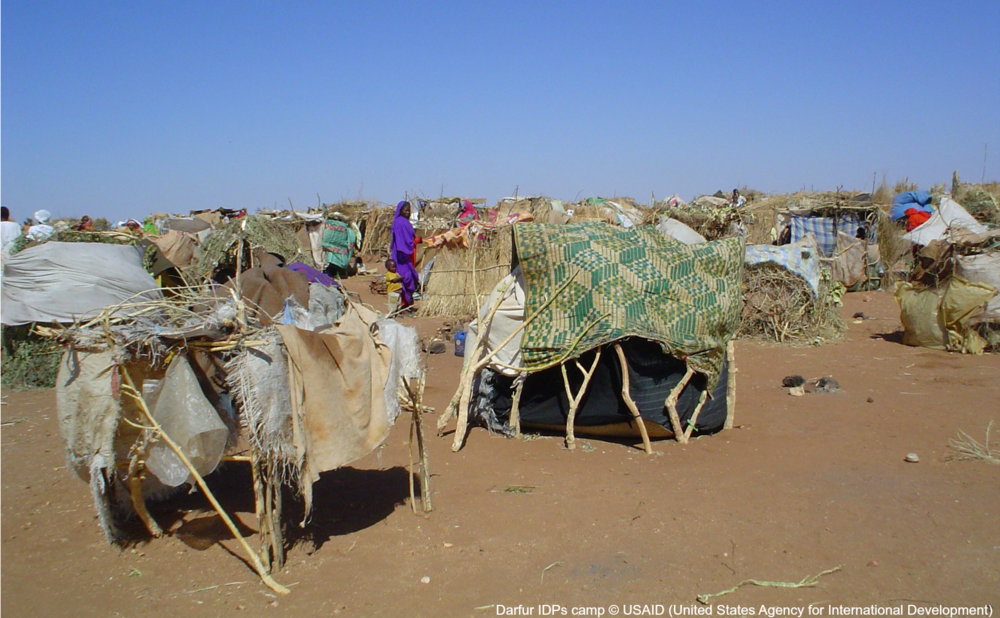
Security Council under fire over climate change
Last week (July 2011), the UN Security Council convened in New York for a special meeting on peace, security and climate change. This is the first time since 2007 that the Council has discussed climate change, and members once again found themselves debating whether climate change fell under the Council's mandate.
Over the course of seven hours, more than 60 representatives spoke in this fiery debate. Council members and invited representatives clashed over the responsibilities of the Security Council and the complex link between climate change, dwindling resources, environmental insecurity and political and social instability.
Many countries including the UK, France, and Germany as well as UN Secretary-General Ban Ki-Moon and Achim Steiner, UNEP Executive Director, pointed to the huge strain that climate change was putting on fragile states. They warned that environmental pressures had played clear, contributory roles in the crises in Darfur and Somalia.
Nauru pleaded with countries not to bury their heads in the sand. The country's President and Chair of the Alliance of Small Islands States (AOSIS) explained that climate change was the "single greatest security challenge of all" for small island state like Nauru. The realities that frontline countries are already facing, he said, demanded more than "sympathetic words".
In a strongly worded statement, the US argued that by its silence the Security Council was effectively saying to frontline countries: "[you've had] tough luck". The US representative called the inability of the Council to agree on a Presidential Statement on the issue "pathetic" and a "dereliction of duty".
However, the G77+ China warned that the Security Council is ever encroaching on the mandate of other organs of the UN to the point of a distortion of the UN Charter.
In a statement read by Argentina, the G77+China cited UN General Assembly Resolution 63/281 which states that the UN Framework Convention on Climate Change (UNFCCC) should be the "key instrument" for addressing climate change. It additionally pointed to the General Assembly and the Economic and Social Council (ECOSOC) as the appropriate institutional homes for matters of sustainable development, including climate change.
The South African representative added that global governance on climate change needed to be consultative and open. Everyone needs an opportunity to voice their perspective. Conflicts are almost always caused by a complex interaction of different factors. Rarely, if ever, can crises be attributed to one driving factor alone.
However, it defies logic to argue that climate change will not exacerbate existing stresses on fragile states, and that added pressure could be enough in some circumstances to lead to social and political instability and even conflict.
Sea level rise and coastal erosion are forcing people to abandon their homes and land. This is an obvious and devastating form of insecurity. At a national scale, for small island states at risk of disappearing, this truly is the ultimate security challenge.
Climate change is arguably the greatest challenge we have faced in our collective history. There is no past precedent to refer to, no lessons we can learn from. As such we need to take a precautionary approach to tackling it.
Cooperation between all organs of the UN is hugely important.
As highlighted by President Stephen of Nauru, migration is one area that attention must be turned to. As of yet, there is no planned, coordinated humanitarian strategy to respond to environmentally-induced displacement.
The horrific situation caused by the drought in East Africa demonstrates what happens when we fail to prepare and build capacity before disasters strike. Action is better than reaction. EJF's No Place Like Home campaign works to secure the rights and protection of people displaced by declining environmental conditions associated with climate change.
SIGN UP FOR OUR EMAILS AND STAY UP TO DATE WITH EJF